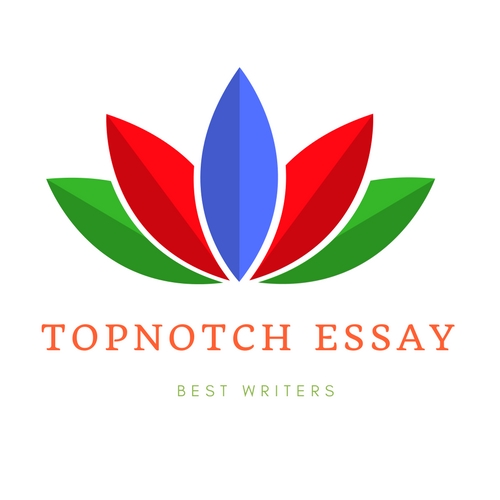Critical thinking is an intentional application of logic and reasoning in order to understand something or to make a decision. One can utilize the elements of thought or using the application of asking the right questions in order to apply their critical thinking abilities. While each option on their own can provide valuable components of critical thinking, the use of them together would heighted the skills needed to utilize critical thinking.
The elements of thought are centered on reasoning. There are eight elements. The first element is to understand that all reasoning has a purpose. The second element is to understand that reasoning is used in an attempt to expand ones understanding. The third element is to understand that reasoning is based on assumptions. The fourth element is to understand that reasoning is rooted in a specific point of view.
The fifth element of thought is that reasoning is based on data. The sixth element is that understanding all reasoning expresses itself through ideas. The seventh element is that understanding always contains inferences or interpretations. One utilizes the inferences and interpretations to give meaning to the data that has been collected. The eighth and final element is to know that the use of reasoning has implications.
The right questions are different than the elements of thoughts. They are centered on five points. The five points are innate egocentrism, innate sociocentrism, innate wish fulfillment, innate self-validation, and innate selfishness. In order to utilize the right questions in applying critical thinking one has to ask themselves each question from the five points. The first question one must ask themselves is: Is it true because I believe it? This is innate egocentrism.
The second question is: Is it true because we believe it? This is innate sociocentrism. The third question is: Is it true because I want to believe it? This is innate wish fulfillment. The fourth question is: Is it true because I have always believed it? This is innate self-validation. The fifth and final question is: Is it true because it is in my vested interest to believe it? This is innate selfishness.
Similarly, they both as the person who is exercising their critical thinking skills to examine themselves and their own understanding of their individual perspectives. The elements of thought require a person inspect their thought processes and the applications of that thought process. The right questions require a person to inspect the understanding they have of their perspectives.
The main difference between the elements of thought and the right questions is what they ask of the individual. The element of thought is based in understanding critical thinking from a critical thinking perspective. The right questions are based on an interpersonal knowledge of ones self. It is encouraging one to separate themselves from the decision that they are making.
While both approaches have their merits, critical thinking would be better served if both approached were combined and utilized together. The elements of thought help one to expand their ability to use reasoning. The right questions ask one to separate themselves from their beliefs and maybe even personal values or opinions in order to utilize critical thinking in a constructive manner. Utilizing both would result in a more comprehensive critical thinking ability.
Critical thinking is An attitude of being or state of mind to thoughtfully consider the problems and subjects that come within a range of ones experiences; Knowledge of the methods of logical enquiry and reasoning; and, some skill in applying those methods (Lloyd & Bahr, 2010). Ones personal beliefs or experiences could potentially harm the critical thinking method, because both beliefs and experiences are subjective. Personal subjectiveness can cloud ones use of critical thinking. In order to constructively use critical thinking, one must implement the right questions, in order to separate the subjectiveness from the understanding and/or decision making.
According to Anderson, it is important to encourage the use of critical thinking in conjunction with creative thinking. This is important because sometimes a problem needs to be solved in creative manner that is rooted in critical thinking. However, one must be aware that personal subjectiveness may corrupt the critical thinking, as well as, the creative thinking. For example, one could not solve the problem in the Middle East utilizing Christian values as most citizens in the Middle East are Muslim or Jewish, therefore, a Christian approach would not be well-suited nor widely accepted by those who do not share the same beliefs. The same could be said about a vegan problem. One could not solve a vegan problem by using a solution for people with a primarily meat based diet.
The use of both the elements of thought and the right questions not only encourage one to examine themselves closely but it also encourages to look at problems from different perspectives. Varying perspectives and collaboration are how problems are solved. However, in order to solve problems or gain a deeper understanding of unknown variables, one must first know themselves so that they can separate themselves from the process of critical thinking. While each option on their own can provide valuable components of critical thinking, the use of them together would heighted the skills needed to utilize critical thinking.
References
Anderson, M. (2015). The Case Against Critical Thinking Skills: In Pursuit of a Humanizing Pedagogy. Ohio Valley Philosophy of Education Society, 46: 83-89. Retrieved from https://files.eric.ed.gov/fulltext/EJ1076839.pdf
Lloyd, M., & Bahr, N. (2010). Thinking Critically about Critical Thinking in Higher Education: International Journal for the Scholarship of Teaching and Learning, 4(2), article 9. Retrieved from https://digitalcommons.georgiasouthern.edu/cgi/viewcontent.cgi?article=1229&context=ij-sotl
Get Help With Your Essay
If you need assistance with writing your essay, our professional essay writing service is here to help!
Find out more







Recent Comments